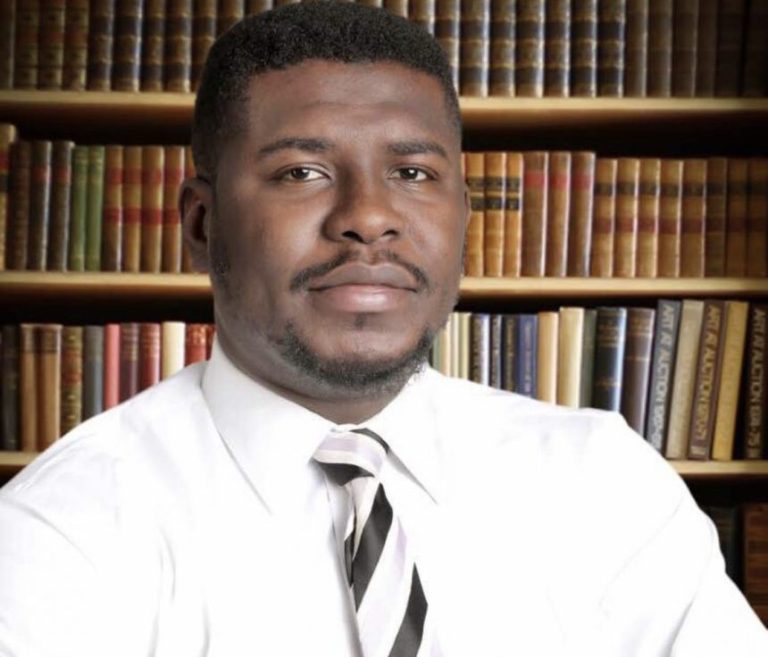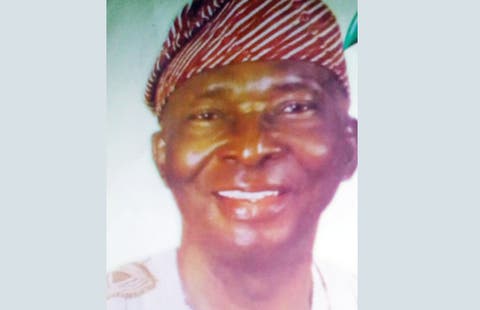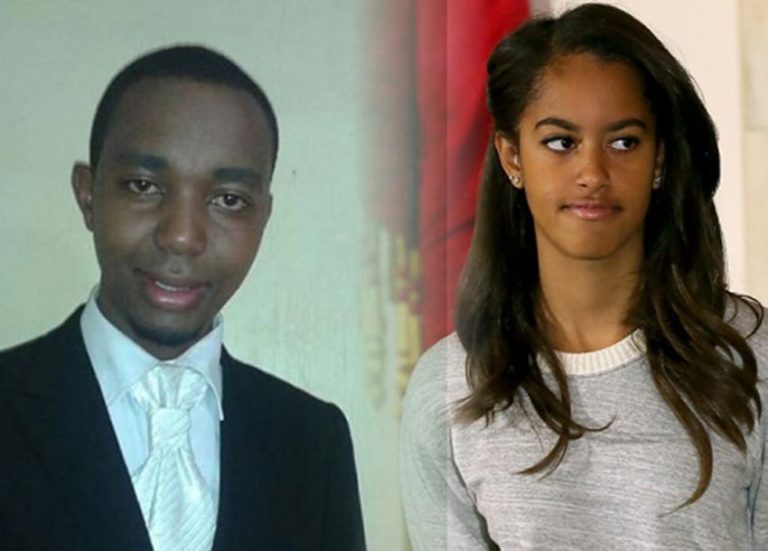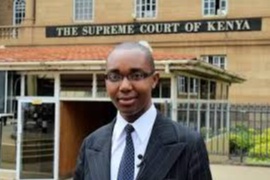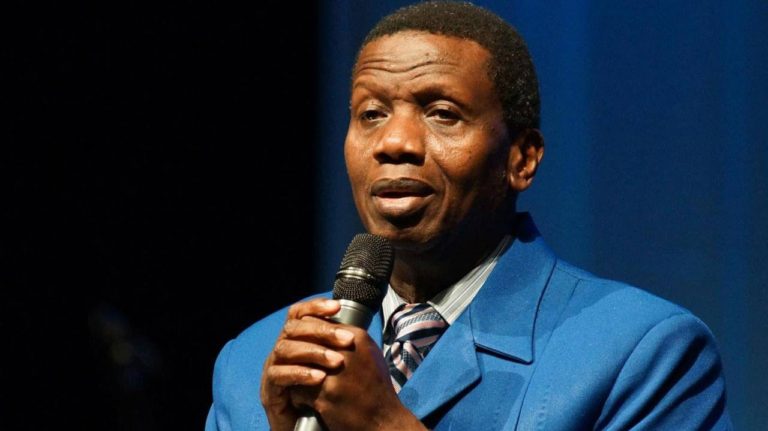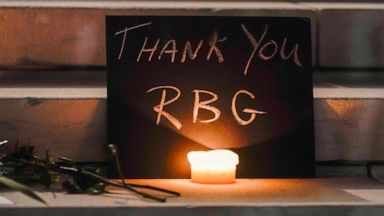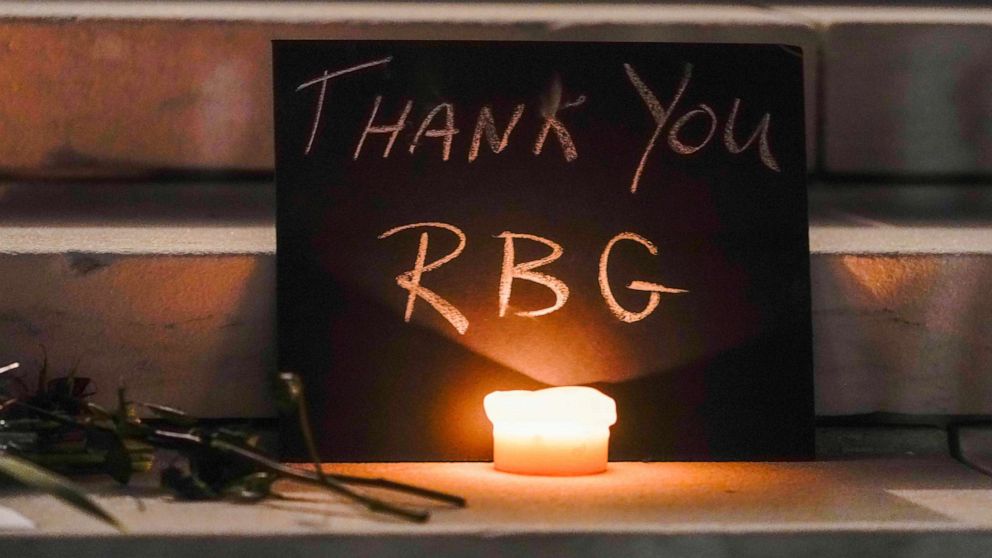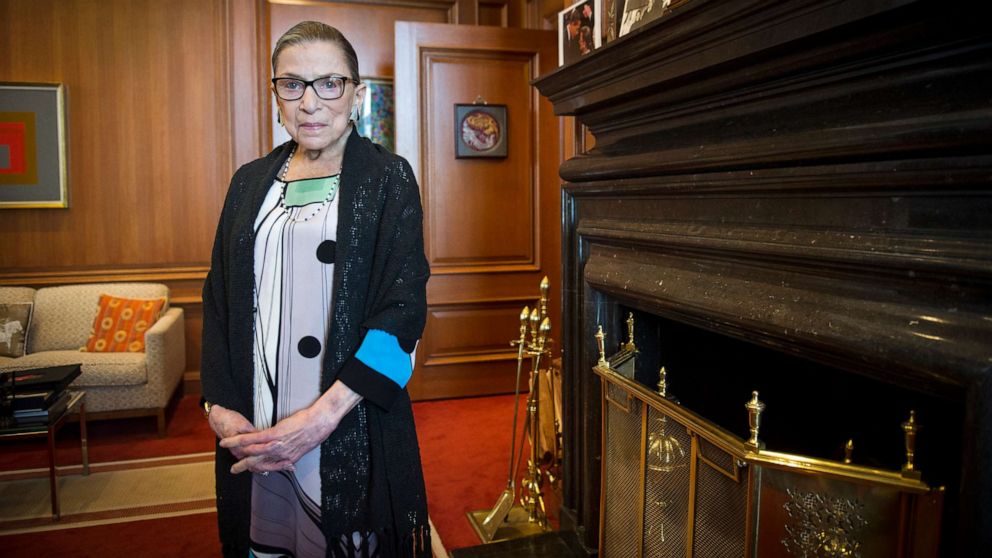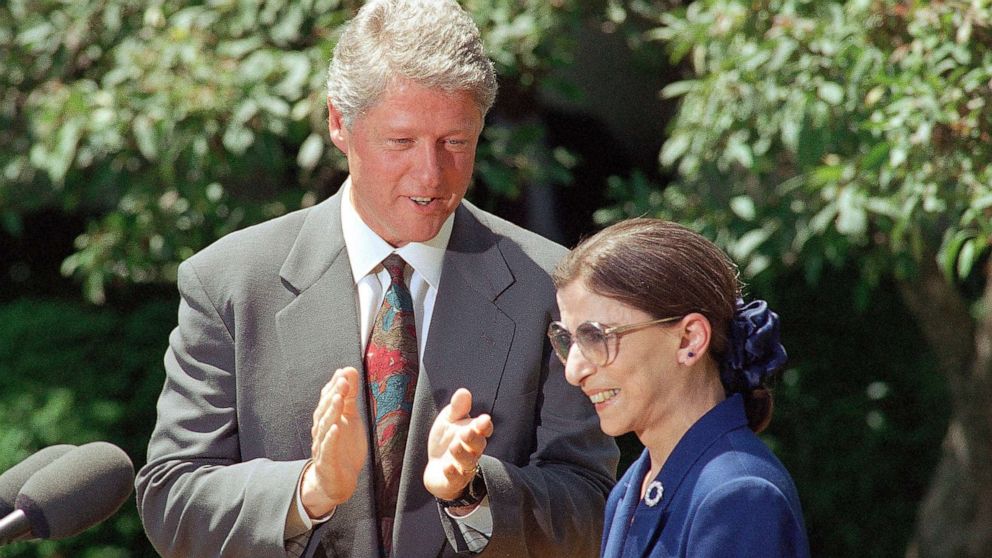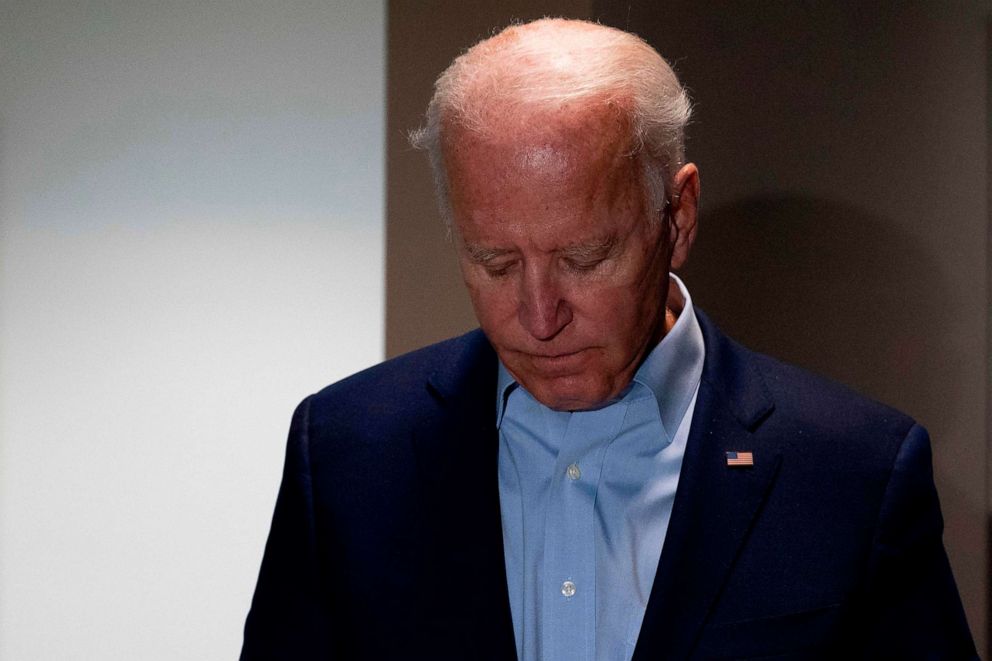TRUE LIFE STORY
It was three o’clock in the morning.
The telephone rang in the Governor’s official residence in Ibadan. Who could be calling the Governor at this time of the day?
The Governor was told it was someone from Lagos and the caller insisted that he must speak with the Governor personally. The caller said it was urgent and important.
The Governor of Western Region, Oba Tadenikawo Adesoji Aderemi, the Ooni of Ile-Ife, answered the phone. His Royal Highness recognized the voice on the other end. It was the voice of a royalty, a prince, a jurist and a Knight of the British Empire.
The caller was His Lordship Sir Adetokunbo Ademola, the Chief Justice of the Federation.
“Kabiyesi, may I respectfully advise Your Majesty to vacate the Government House immediately.”
Oba Aderemi thought it must be a joke, and an expensive one at that. Vacate the Government House? And immediately too?
As if reading His Majesty’s mind, Justice Ademola assured Kabiyesi that it was not a false alarm and that the Arole Oodua might be forcibly ejected from the Government House before the end of the day if he failed to leave.
His Lordship was calling because as a prince himself he didn’t want Kabiyesi, and by extension, the throne of Oodua, to be disrespected.
Kabiyesi did not bother to sleep again. Ilo ya, Onibode Apomu! He summoned his staff and with dignified calm and regal fortitude as befits the Oonirisa, the Arole Oodua directed them to pack his personal belongings.
By 10 am, Baba Tejumade was on his way to his Royal Throne in the ancient city of Ile-Ife.
What could have caused the Ooni, the Supreme Representative of Oduduwa, the founder of Yoruba race to be asked to leave the Government House in the middle of the night.
It was barely two years ago that history was made when he was appointed the Governor of Western Region, the first indigenous governor in black Africa and the Commonwealth.
It was indeed a joyous occasion for the whole of Yoruba race.
Iya Agba told me that they were on the farm in Aba Alaro when Baba Dauda brought the news from Ife. They all abandoned the village and trooped to the Palace.
Iya Agba said Kabiyesi personally waved his irukere at her, but Onigegewura won’t swear to this fact in the witness box.
What Onigegewura is however sure of was that Haruna Ishola, the father of Apala music, released an album to mark the momentous occasion in which he sang:
“Ìjoba Westan Naijiriya won n pon oba le, Ooni je gomina, Dudupariola Baba Tejumade, Kofoworola Omo Adekunbi…”
[Western Region Government of Nigeria dignifies Royalty, the Ooni is appointed the Governor, the handsome Ebony who begets Tejumade; Ooni who did’t buy his honour, the son of Adekunbi]
Now, Kabiyesi was being ‘advised’ to vacate the Governor’s Lodge!
What could have gone wrong? That midnight or early morning call was like no other call.
It was the call that would alter both the political and legal landscapes of Nigeria forever.
The call was the climax of events which had begun as drizzle in 1960.
By the time the call came in 1962, the drizzle had become torrential rainfall. Let’s go back to 1960.
Cracks began to appear on the walls of the Action Group immediately after Chief Ladoke Akintola became the premier.
He was sworn in by the Governor, Oba Tadenikawo Adesoji Aderemi.
In deference to the exalted throne and position of Oba Adesoji, the newly installed Premier took off his cap to shake hands with the Governor-King. It was a vintage expression of Yoruba tradition! Oba lo ba lori ohun gbogbo!
Following series of political actions and decisions taken by the new Premier who was also the Deputy Leader of the Party, it dawned on Chief Obafemi Awolowo, the Leader of the Party that Chief Akintola was “determined to run the show alone regardless of accepted Party conventions and procedure”.
These actions, according to Chief Awolowo, include the unilateral appointment of Ministers into the Cabinet of Western Region, reduction in the price of cocoa, reducing flat-rate tax from an average of #4.17.6d, exemption of women from taxation, and increases in Assumed Local Contributions in Western Nigeria’s secondary grammar schools, amongst others.
More importantly, Chief Akintola was of the view that the experiment of separating the leadership of the Party from the leadership of the Government in the Western Region had failed.
What was left unsaid was that the Premier ought to be the Leader of the Party.
Chief Obafemi Awolowo
By the time the Party came back from its Jos Convention, it was clear to all and sundry that the festering wound of the Action Group had become an open sore.
Agba kii wa loja ki ori omo tuntun wo. Elders won’t allow the neck of a newborn to go askew.
On February 9, 1962, the Ooni of Ife, Oba Adesoji Aderemi called a peace meeting of the party leaders in order to resolve the differences between the two great men.
The Ooni was supported in this regard by some leading Obas and Chiefs in the region. The meeting however failed to conclusively effect a settlement.
It was becoming apparent that something must give.
Àgbò meji ko le mu omi ninu koto kan naa. It is impossible for two rams to peacefully drink from the same saucer at the same time.
On May 19, 1962, at a meeting of the Executive Committee of the Action Group, Chief Obafemi Awolowo levelled three charges against Chief Ladoke Akintola.
The Leader accused the Deputy Leader of maladministration, anti-party activities, and indiscipline.
In support of the charges, Awolowo spoke for four hours. In his defence, Akintola denied the charges and spoke for three hours.
The jury of party executives listened to both the plaintiff and the defendant. A motion calling on Akintola to resign as the Premier was moved.
The defendant’s group moved a counter-motion for the Premier to only be reprimanded and not removed. The counter-motion was defeated.
The motion for the premier to resign was carried by 81 to 29! The meeting had lasted for 11 straight hours!
The party leadership waited patiently for Akintola’s letter of resignation. No letter was forthcoming.
A ti ki òjé bo oloosa lowo, o ku baba eni ti o bo. Who is going to remove the charmed bracelet from the wrist of a chief priest?
Akintola called a Press Conference and announced that he was not going to resign his post as the Premier.
Instead of a letter of resignation, the embattled premier wrote two letters.
The first letter was to the Ooni, asking the Governor to dissolve the House of Assembly.
The second letter was to the Speaker of the House calling for an emergency meeting of the House for a vote of confidence or otherwise.
The Ooni and the Speaker were perplexed.
How could the House be dissolved and a meeting of the House still be called at the same time?
O pe laye, oju re ko ni ri ibi, ikan ni eniyan yoo fi owo mu. It is either you live long and witness unsavoury things or die young
and experience nothing. It was either for the House to be dissolved or for a meeting of the House to be called.
Awolowo was a legal practitioner. Akintola was a legal practitioner.
They were both brilliant men trained in the finest tradition of the British Bar.
They were both familiar with the Constitution of the Federation of Nigeria and the Constitution of Western Region
(Yes, the Regions had their own constitutions then).
They were also familiar with the common law of England as well as parliamentary practices in the Commonwealth.
The question before Awolowo and the Party was how could a premier be removed from office?
The issue before Akintola and his group was whether a premier could be removed from office.
Awolowo knew that a barber needed another barber to barb his hair. He did the most natural thing.
He requested two of the most brilliant legal minds in the Region to prepare a legal advisory for the Party. Chief Rotimi Williams,
the Legal Adviser of Action Group and Mr. S. O. Ighodaro, the Attorney General of the Western Region accepted the assignment.
The two legal giants spent sleepless nights consulting books of laws from various jurisdictions.
The contentious provision itself was simply worded. It was the proviso to section 33(10) of the Constitution of Western Nigeria which provides that:
“The Governor shall not remove the Premier from office unless it appears to him that the Premier no longer commands the support of a majority
of the members of the House of Assembly.”
Simple? Not quite!
The duo of Williams and Ighodaro were of the firm opinion (your lawyer will tell you that there is a difference between an opinion and a firm opinion) that the operative words in the provision were ‘unless it appears to him’.
The legal experts concluded that as long as it appeared to the Governor in any form or format, the premier could be removed.
It did not even have to be on the floor of the House.
Armed with this legal advice, a form was prepared and members of the House who wanted Akintola to be removed as the Premier
appended their signature. They were 66 in number.
The form was sent to the Governor, His Royal Majesty, the Ooni of Ife.
Based on the signatures of 66 members out of 112 as contained in the form forwarded to the King, it then appeared to the Governor
that the Premier no longer commanded the support of a majority of the members of the House of Assembly.
The Governor exercised his constitutional power!
Sir Adesoji Aderemi removed Chief Ladoke Akintola as the Premier!
Akintola was in the Premier’s Office when he was served with a letter from the Governor removing him from office.
The premier who had just been removed as the premier did three things immediately he finished reading the letter.
He called a Press Conference to inform the world that he was still the premier.
He then called on the Prime Minister, Sir Abubakar Tafawa Balewa, to remove Sir Adesoji Aderemi as the Governor.
Finally he filed an action in court to restrain the Governor from removing him from office.
The Awolowo group was also not idle.
Immediately they were informed that the Governor’s letter had been delivered to the ‘ex-premier’, the party’s Parliamentary Group
elected Akintola’s Minister of Local Government, Alhaji Dauda Soroye Ishola Adegbenro, as the new premier of Western Region.
The Governor was informed of the new appointment.
Oba Adesoji Aderemi accepted the recommendation and His Royal Majesty promptly administered the oath of office to the new Premier.
Alhaji Dauda Adegbenro, the Ekerin of Egbaland and the Balogun of Owu, had become the Premier!
The Commissioner of Police soon arrived. He pledged his services to the new Premier.
The Commissioner of Police was just leaving the newly installed premier when a signal came from Lagos.
He was directed to ‘forthwith withdraw his services, and should take no instructions whatsoever from Adegbenro’.
The people of Western Region woke up on that fateful day in May to find out that they had two Premiers.
On one hand was Chief Akintola who was claiming that his removal as the Premier was ineffectual.
On the other hand was Alhaji Adegbenro who had just been sworn in as the Premier and who had appointed his cabinet members.
Akintola Ta ku [Akintola Remains Adamant] was the headline of The Daily Times.
Across the Atlantic, the New York Times came out with a banner headline: Nigerian Leader Resists Ouster: Fights Removal
As Premier of Western Region. According to the paper: “Samuel L. Akintola has stubbornly refused to accept his dismissal as
Premier of Nigeria’s Western Region.”
On May 23, 1962, the Western Region High Court in Ibadan was filled to capacity. It was the case of the century.
The Governor had removed the Premier.
In turn, the Premier had asked the Prime Minister to sack the Governor.
The new Premier, Alhaji Adegbenro, was however not a party to the case at this stage.
The Chief Justice of the Western Region then was My Lord Justice Samuel Quarshie-Idun.
(At the time, head judges of the regions were also called Chief Justices. They are now addressed as Chief Judges).
Of course you know Mr. Justice Quarshie-Idun now. That was the trial judge in the case of Adegoke Adelabu! Ha! You remember him now!
His Lordship was however not in Ibadan at the time the suit was filed.
The CJ was on tour of the Midwest area of Western Region. Justice Olujide Somolu quickly sent message to His Lordship to come back to
Ibadan for the very important case.
Chief Akintola’s legal team was led by a Queen’s Counsel, Chief Ladipo Moore, the brilliant son of the legendary lawyer, Eric Olawolu Moore.
(You know Eric Moore Road in Surulere, Lagos? The street is named after the formidable advocate).
Eric Moore’s daughter, Miss Kofoworola Moore (later Lady Ademola), was married to Sir Adetokunbo Ademola, the Chief Justice of the Federation. Lady Ademola was reputed to be the first black African woman to earn a degree from Oxford University.
The Ooni was also represented by a Queen’s Counsel, the indomitable Rotimi Williams whose brilliance was unparalleled.
Of him, Chief Awolowo said: “Timi’s output, in any assignment, was always as big as his physical stature.”
The proceedings had hardly begun when Chief Akintola’s counsel fired the first salvo.
Chief Moore objected to the competence of Chief Williams to appear for Sir Adesoji Aderemi. The Court agreed with his submission.
Chief Williams was refused permission to continue to act as counsel for the Ooni.
The Governor promptly instructed another brilliant counsel, Barrister Akinyele to lead his defence.
It was at this stage that Chief Ladipo Moore advised his client on the need for them to join Alhaji Adegbenro as a Defendant.
Immediately he was joined, Alhaji Adegbenro filed a counter-claim against Chief Akintola.
It was now a case of Two Premiers and a Governor! Where would the pendulum swing?
Whilst the case was going on, Alhaji Adegbenro had moved into the Premier’s Office.
He had started functioning as the Premier and he was also using the Premier’s official car.
In fact, when he was later restricted under the Emergency Regulations, it was the official car of the premier that took him to Osogbo,
his place of restriction.
On the adjourned day, Chief Moore argued his application for injunction to restrain Sir Adesoji Aderemi from purporting to relieve
Chief Ladoke Akintola of his office as premier in the absence of a resolution of the House of Assembly.
The motion was opposed by Mr. Akinyele who argued that to the extent that Chief Akintola was no longer the premier, there was nothing
for the court to restrain. It was classical advocacy at its best.
His Lordship listened to the arguments from the two brilliant advocates. It was indeed a very difficult case.
The Court then made two rulings.
In respect of Chief Akintola’s motion, His Lordship granted the injunction prayed for by the man who would later become the Aare Ona Kakanfo of Yorubaland. Justice Quarshie-Idun ordered Alhaji Adegbenro not to assume the office of Premier.
In other words, Chief Akntola was to continue in office. At least, pending the determination of the suit itself.
With regard to the substantive suit, the Chief Justice referred the case to the Supreme Court because of its grave constitutional importance.
At the Supreme Court, it became a battle Royale!
The apex Court itself admitted that it was being “called to perform a difficult duty.” Something like that had never happened before.
There was no precedent to be followed.
The Supreme Court then did something. It invited all the Attorneys General in the country to appear as amici curiae.
Onigegewura had already explained the meaning of this expression in Sunny Ade’s story.
It was however only the Eastern Nigeria Attorney General that sent his Solicitor General to assist the court.
Four Lord Justices sat to hear the case.
Sir Adetokunbo Ademola, a Prince of Abeokuta and a Knight of the British Empire, presided as the Chief Justice of the Federation.
Also on the panel was Honourable Mr. Justice Lionel Brett, a World War II veteran, who was the last expatriate to serve as Nigeria’s Solicitor General. Mr. Justice Idowu Taylor was also on the panel.
The Magistrate Court Complex at Igbosere, Lagos is named after him. Another Knight, Sir Vahe Bairamian, was the fourth Justice.
The question before the Court was whether the Governor could remove the Premier based on a letter signed by a body of members
of the House and not as a result of a vote of no confidence on the floor of the House.
In other words, how would it appear to the Governor that the premier no longer enjoyed the support of the majority of parliamentarians?
After exhaustive deliberations, My Lord Justice Adeokunbo Ademola held that the Governor exceeded his constitutional powers.
According to His Lordship: “The Governor cannot validly exercise power to remove the Premier from office except in consequence
of proceedings on the floor of the House.”
Justices Taylor and Bairamian agreed with His Lordship.
My Lord Justice Brett, the World War II veteran, was however unable to agree with the reasoning of the majority.
In his dissenting judgment, the former Solicitor General of Nigeria held that: “the Constitution does not preclude the Governor
from acting on any information which he considers reliable.”
Chief Akintola’s group erupted with happiness. Official’s Removal Reversed in Nigeria screamed the New York Times’ headline of July 8, 1962.
Chief Akintola, the master linguist, didn’t allow the moment to go without poking fun at his opponent.
The middle name of Alhaji Adegbenro is Soroye which could be literally interpreted to mean ‘do you see honourary title?’.
According to various accounts, Chief Akintola quipped: Sóoróyè kii je oye. Yio ma roye ni, ko ni je oye. (‘Do you see honourary title can only see title but he cannot become a titleholder!).
Onigegewura had earlier told you in Adelabu’s story that the Federal Supreme Court was not the final court of appeal at the time.
Alhaji Adegbenro appealed to the Privy Council in London.
On May 27, 1963, the Judicial Committee of the Privy Council delivered its judgment.
Five Lord Justices heard the appeal which had come all the way from the Federal Supreme Court of Nigeria.
I hope you recall that Chief Rotimi Williams and Mr. Ighodaro had opined that the Governor could exercise his power to remove the
Premier as long he was convinced that the premier no longer commanded majority support.
I hope you also remember that the dissenting judgment of Brett FJ agreed with this reasoning. That’s good. It shows that you are following me.
The Privy Council held that the Federal Supreme Court misapplied the law.
The PC agreed with the legal opinion of Chief Williams and Mr. Ighodaro.
The Council therefore allowed the appeal and reversed the majority decision of Ademola, Bairamian and Taylor.
The council upheld the minority decision of Brett FJ.
In effect, the Council held that Oba Adesoji Aderemi exercised his power to remove Akintola constitutionally!
Adegbenro has won!
The Privy Council did not stop there.
It also directed Chief Akintola to pay Alhaji Adegbenro the sum of #1,140:8s: 5d as the costs incurred in prosecuting his case
from Nigeria to the United Kingdom.
This time around, it was the turn of Alhaji Adegbenro’s group to erupt with joy!
But it was a short-lived joy.
As the Privy Council Lord Justices were signing off on their judgment in London, something was happening back home in Nigeria. On the same day, the Western House of Assembly amended its constitution.
I hope you have not forgotten that the decision of both the Supreme Court and the Privy Council was based on the proviso to section 33 (10) which Onigegewura had quoted above.
Minutes after the Privy Council had announced its decision, the provision was amended by adding the following phrase: “…in consequence of the passing of a resolution in the House of Assembly by a majority of the members of that House”.
That’s not all. The amendment was also backdated by three years. It was deemed to have taken effect from October 1960!
I hope you are not becoming confused with the legal theatrics.
In other words, the decision of the Governor taken in 1962 was now null and void because it was not in consequence of the passing of a resolution in the House of Assembly by a majority of the members of that House!
The decision of the Privy Council delivered in 1963 was also of no legal effect.
The long and short of it is that Chief Akintola had never been removed as the Premier! Legally speaking!
Adegbenro had scored his goal in London.
Unfortunately, the goal post had been moved in Ibadan. Ibadan lo mo, o mo láyípo!
That however was not the end of the story.
Alhaji Adegbenro, the Ekerin Egba, had lost the premiership but he was not about to lose the costs awarded in his favour
by the Privy Council.
He filed an application at the Supreme Court of Nigeria for the Court to direct the Premier to pay him his costs.
He was represented this time by Chief Akin Olugbade. Chief Akintola was represented by Chief Moore.
Chief Akintola argued that he should not pay any costs because his government had nullified the decision of the Privy Council.
The court disagreed. The apex court found merit in the application of Alhaji Adegbenro.
After all, aya òle la n gba, ko si eni ti o n gba omo òle. A lazy man can only lose his wife and not his child.
The court ordered Chief Akintola to pay Alhaji Adegbenro the costs incurred in the Supreme Court of Nigeria and the sum of #1,140:8s: 5d
being the costs of his appeal to Privy Council in England.
Onigegewura is able to confirm that Chief Akintola paid the costs.
The story did not end there…
You are wondering why appeals were still being taken to the Privy Council notwithstanding Nigeria’s status as an independent country.
Onigegewura will tell you the reason.
It was because the country remained a Commonwealth Realm with the Queen as her Head of State. Nigeria was not yet a republic.
Following the decision in the Akintola case, Nigerian Government felt the time had come to become a full republic.
Ti a ba fi agbo fun egun, a fi okun re le ni. When you give a ram to the masquerade, you ought to leave the rope.
Why was Her Majesty still holding on to the rope after giving us the ram? The time had come to cut the political umbilical cord.
The 1963 Republican Constitution was promulgated.
With that singular act, Nigeria became a Republic and appeal to Privy Council was abolished.
The Supreme Court became the final court of appeal for the Federal Republic of Nigeria.
And it all started with that midnight call.
That however was not the end of the story…
I thank you very much for your time.
-Olanrewaju Onigegewura©️

